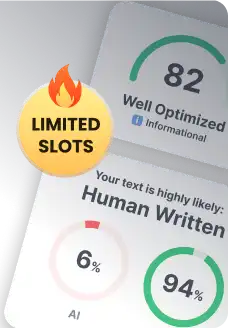My friend was close to tears. Not the good kind. “I don’t know if I can do this anymore,” she confessed, wrestling with another round of edits for her fantasy novel. Fast forward a few months, and that same friend was beaming, celebrating a major milestone: earning out her advance. Her journey, a rollercoaster of emotions and hard work highlights the reality of author income today. This begs the question: how much can you make writing a book?
Key Takeaways
- They vary by author, genre, publisher, and marketing efforts.
- Book advances provide that initial income jumpstart. You have to earn that money back in book sales before you’ll see any additional royalties.
- Earnings per book sold vary by format. E-books and audiobooks usually have higher royalty percentages than regular print copies.
- What types of books (fiction vs. nonfiction) might matter when it comes to profitability? Do niche markets provide more opportunities to make money?
- With writing and publishing a book, there are a lot of costs such as editing, cover design, and ongoing promotion. Profit will vary.
- Learning more about other income avenues, such as speaking opportunities or special merchandise, can help an author make more money than through books alone.
How Much Do Authors Earn?
Let’s delve into the specifics of potential earnings from book writing. This journey can lead to varied financial outcomes, depending heavily on your publishing choices. For authors, income can vary significantly based on whether they choose traditional publishing, self-publishing, or a hybrid approach. First-time authors typically see advances of $1,000 to $10,000 per book. Self-published authors, however, retain more control and have the potential to earn substantially more per book sold compared to their traditionally published counterparts.
Traditional vs. Self-Publishing Income
The average earnings between traditional and self-publishing tell an interesting story. Traditional publishing offers the security of advances, whereas self-publishing provides higher royalty rates and control over pricing. Traditionally published authors receive lower royalty rates, ranging from 8-15%, while self-published authors can earn up to 70% in royalties. The choice between these paths depends on individual priorities: the financial support and industry expertise of traditional publishing versus the creative and financial control of self-publishing.
Role of Literary Agents
For authors pursuing the traditional route, literary agents significantly affect financial success. They secure book deals, negotiate advances, and advocate for higher royalty rates. Agents typically charge a 15% commission on domestic sales, but their expertise often leads to more lucrative deals. The fees for hiring an agent can be worthwhile, granting access to larger publishers and more substantial contracts. For many traditionally published authors, an agent is not merely a representative but a cornerstone of their success strategy.
Understanding Book Advances
Understanding book advances is crucial for authors aiming to gauge their potential earnings. Let’s explore what book advances entail, their mechanics, and their implications for writers.
What is a Book Advance?
A book advance is an upfront payment from a publisher to an author, intended to cover living expenses while the author completes the book. It serves as a financial safety net, allowing writers to focus on their work without immediate financial concerns. Advances are often paid in installments, typically linked to significant milestones such as signing the contract, submitting manuscript portions, and the book’s publication. This staggered payment structure can impact an author’s cash flow management.
An advance is essentially a loan against future royalties. This means you must “earn out” your advance before receiving additional royalty payments. Earning out signifies that your book’s sales must first recoup the advance amount. Understanding the terms of your advance agreement is crucial before signing, as it’s about comprehending the commitment rather than just the initial payment.
Average Advance for New Authors
The reality of advances for new authors often differs from the glamorous perception of six-figure deals, which are rare. First-time authors typically receive advances between $5,000 and $15,000. These figures vary by genre; for instance, non-fiction tends to attract higher advances due to perceived market demand and sales potential.
Several factors influence the size of an advance for new authors, including the author’s platform, media interest, and current market trends. A strong social media presence or a unique voice can command a larger offer. However, a substantial advance doesn’t guarantee success; it’s more about laying the groundwork for future opportunities, such as writing additional books.
The realm of e-book royalties is also evolving. Traditional publishers typically offer around 25% for e-books, while start-up publishers may offer up to 50% for e-books and 10-50% for print books. This can be a game-changer for new authors aiming to maximize earnings and grow their readership.
Earnings Per Book Sold
Understanding how royalties work is essential when considering income from writing books. Royalties are the earnings derived from each book sold and can vary significantly based on the publishing method chosen.
Traditionally published authors might start with a royalty rate of around 10% of the hardback sale price. For example, if a book is priced at $14.99, the author might earn about $1.79 per book. As sales increase, these rates can rise to 12.5% after 5,001 copies and 15% after 10,000 copies.
Self-published authors, in contrast, often retain a larger share, keeping roughly 60-70% of the sale price. For the same book price, a self-published author could earn around $5.74 per book.
Want to try SurgeGraph for free?

Generate 20 documents

SEO tools (Auto Optimizer, Internal Linking, and more)

No credit card required
Royalties and Their Impact
Royalties significantly affect an author’s earnings. Self-publishing through platforms like Amazon Kindle Direct Publishing (KDP) offers a 60% royalty rate, which can lead to substantial earnings, especially with high sales volumes. For instance, selling a thousand books could earn a self-published author over $24,000 more than a traditionally published author selling the same number.
It’s also vital to differentiate between net and gross sales. Gross sales are the total sales before any costs, while net sales are what remains after deductions. Knowing this distinction helps negotiate royalty terms. For some authors, royalties can provide long-term financial success, particularly if their books continue to sell over time.
Variations by Genre
Not all book genres offer the same earning potential. Some genres are more profitable due to larger readerships or higher price points. For example, business or self-help genres may offer better royalties and sales due to a broader audience. The size and activity of your fan base also matter; a larger fan base can translate to more sales. Emerging genres can be promising, offering new opportunities despite not yet having a large audience. Exploring these genres could unlock significant earnings if you capitalize on growing interest.
A self-published author in a niche genre might earn anywhere from $5.74 to over $100,000, depending on how effectively they market their book. In contrast, traditionally published authors could earn between $1.79 and $90,000, depending on sales and contract terms.
Types of Books and Profitability
Exploring the different types of books is a good starting point for understanding potential earnings. Each type presents unique opportunities and challenges that influence financial success.
Fiction vs. Nonfiction
When considering writing a book, a common question is whether fiction or nonfiction is more profitable. Fiction can achieve much higher sales volumes if it captivates readers’ imaginations. Market demand plays a significant role here; for example, thriller and romance genres are consistently popular in fiction, while self-help and business books lead in non-fiction.
The challenges of writing non-fiction include establishing credibility and authority. Fiction authors face competition from the broader entertainment world but can enjoy creative freedom in crafting new worlds and characters. To maximize earnings, authors should build a brand, develop an audience, utilize platforms for greater visibility, and consider hybrid publishing for increased financial returns.
Best-Selling Genres for Profit
Certain genres consistently produce best-sellers, enhancing profitability. In fiction, fantasy, mystery, and romance often top the charts. Successful books in these genres typically offer compelling stories or insights. In non-fiction, self-help, memoirs, and business books dominate because they provide valuable insights or tell engaging stories.
Conducting market research is crucial when choosing a genre. This involves assessing current trends, reader responses, and market gaps. Authors like J.K. Rowling have successfully tapped into the fantasy genre, while Malcolm Gladwell has captured the non-fiction market by addressing specific demands.
Financial Viability: Series vs. Standalone Books
Writing a series is often more financially viable than writing a standalone book. Series help authors build a consistent readership, as readers become attached to characters and plots, encouraging repeat purchases. This can boost sales and create opportunities for adaptation into other media. Standalone books can still be lucrative, especially if they resonate quickly with a broad audience, and require less initial commitment from readers.
Impact of Book Format
The format of your book can also affect profitability. Hardcovers typically offer higher royalty percentages but come with higher production costs. Paperbacks are more affordable for readers, potentially leading to higher sales volumes. E-books, with their low production costs, can be highly profitable, especially if priced strategically. Authors typically earn about 10% in royalties from book sales, but a skilled agent can negotiate this up to 15% for domestic sales and 20% for foreign sales (though foreign advances may be reduced by 20%).
Additional Income Opportunities
A book can open numerous revenue streams beyond direct sales. Let’s explore these opportunities and how authors can maximize their earnings.
Subsidiary Rights and Licensing
Subsidiary rights allow authors to publish their books in various formats or languages, significantly increasing their income potential. Licensing these rights means permitting others to use your work, enabling them to pursue opportunities you might not be able to afford directly. This includes translations for international markets or adaptations for film and TV, creating additional revenue streams.
Want to try SurgeGraph for free?

Generate 20 documents

SEO tools (Auto Optimizer, Internal Linking, and more)

No credit card required
For example, selling foreign rights can generate substantial revenue, especially if your book resonates across different cultures. Film or TV adaptations can also bring significant revenue. Negotiating these rights in your publishing contracts is crucial to ensure a fair share and some control. It’s advisable to have a literary agent or lawyer assist you in navigating these complexities.
Subscriptions and Donations
Authors can also enjoy subscription services and reader donations. Platforms like Patreon or Substack allow fans to support their favorite authors directly, providing a stable income source, particularly for those with an established following.
Authors can offer subscribers exclusive content, such as early access to new chapters, behind-the-scenes insights, or live Q&A sessions. This not only generates income but also fosters a community around their work. Creators like Amanda Palmer have successfully utilized these models, building close relationships with readers and securing financial support.
Encouraging reader engagement and support can create a sustainable income stream. Maintaining this relationship and providing value to subscribers is key to long-term success.
Merchandise and Beyond
In addition to books, authors can create products related to their work, like themed clothing or collectibles. J.K. Rowling has expanded the Harry Potter universe into a vast array of merchandise, significantly boosting her income. Merchandise not only generates revenue but also sustains interest in your book.
Authors can also offer workshops, speaking engagements, or online courses based on their book’s subject matter. These activities enhance income and establish the author as an authority in their field.
Examples of Successful Authors
Many authors have successfully leveraged these additional income streams. For instance, E.L. James of “Fifty Shades of Grey” fame expanded beyond book sales to include movie adaptations and merchandise. Brandon Sanderson has engaged his fantasy audience with a subscription model, providing exclusive content and building a dedicated community.
Frequently Asked Questions
How much do authors typically earn from writing a book?
Authors’ earnings vary wildly. The average traditionally published author earns maybe $5,000 to $10,000 in advances. Self-publishing gives you more control, but you could earn less at first. Earnings depend on your sales, marketing, and the book’s niche.
What is a book advance?
A book advance is a payment an author receives from a publisher before a book is published. It’s an advance on future royalties. That depends on the author, the book, and the publisher.
Which types of books are most profitable?
Genres like romance, mystery, and self-help tend to sell. Non-fiction books focusing on niche markets can also be profitable. Profitability depends on audience size, marketing efforts, and distribution channels.
Can authors earn additional income from their books?
Authors can make money from doing talks, holding workshops, and selling ancillary things. Licensing for film, TV, or audiobook rights can also increase earnings. Building a brand around their work opens up diverse revenue streams.
How can an author increase their book sales?
Solid marketing is the most important thing. Authors need to use social media, have an email list, and connect with their readers. Partnering with influencers and engaging in book events can also boost visibility and sales.





